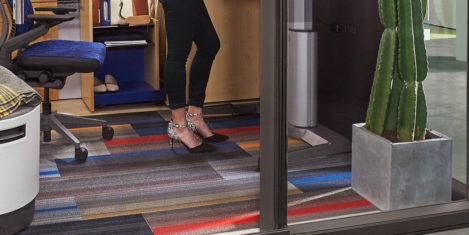To provide the best experiences, we use technologies like cookies to store and/or access device information. Consenting to these technologies will allow us to process data such as browsing behaviour or unique IDs on this site. Not consenting or withdrawing consent, may adversely affect certain features and functions.
The technical storage or access is strictly necessary for the legitimate purpose of enabling the use of a specific service explicitly requested by the subscriber or user, or for the sole purpose of carrying out the transmission of a communication over an electronic communications network.
The technical storage or access is necessary for the legitimate purpose of storing preferences that are not requested by the subscriber or user.
The technical storage or access that is used exclusively for statistical purposes.
The technical storage or access that is used exclusively for anonymous statistical purposes. Without a subpoena, voluntary compliance on the part of your Internet Service Provider, or additional records from a third party, information stored or retrieved for this purpose alone cannot usually be used to identify you.
The technical storage or access is required to create user profiles to send advertising, or to track the user on a website or across several websites for similar marketing purposes.
 UK employees have the longest working week compared to other workers in the European Union. But, despite the long hours, recent studies have shown this does not make the UK a more productive nation. An analysis by the Trade Union Congress on working hours and productivity found that, while UK full-time staff worked almost two hours more than the EU average, they were not as productive as staff in Denmark who worked fewer hours in the average week. (more…)
UK employees have the longest working week compared to other workers in the European Union. But, despite the long hours, recent studies have shown this does not make the UK a more productive nation. An analysis by the Trade Union Congress on working hours and productivity found that, while UK full-time staff worked almost two hours more than the EU average, they were not as productive as staff in Denmark who worked fewer hours in the average week. (more…)





 Ahead of daylight savings this weekend,
Ahead of daylight savings this weekend, 











 The challenge to achieve gender equality at work isn’t made any easier by the attitudes of some employers. Although men increasingly want to be more present at home, currently fathers are
The challenge to achieve gender equality at work isn’t made any easier by the attitudes of some employers. Although men increasingly want to be more present at home, currently fathers are 







June 26, 2019
Flexible working is the new measure of success
by Ben Chatfield • Comment, Flexible working